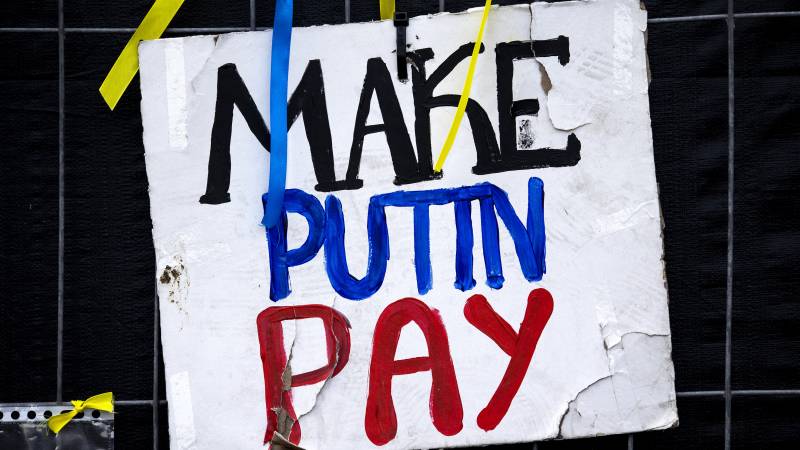Russia has to pay interest of about 107 million euros today. A modest amount, but the sanctions make it difficult for Russia to meet its financial obligations. Therefore, it could lead to the bankruptcy of Russia.
It relates to two dollar government bonds issued by Russia in 2013. So interest on this must also be paid in dollars, but this is almost impossible due to international sanctions. Because of the war in Ukraine, Russia can’t get dollars and euros anymore.
What if Russia misses payment?
Last year, Russia’s national debt amounted to about 61 billion euros, of which 19 billion was in foreign currency. The country had a relatively low external debt (4 percent) compared to GDP.
If Russia does not make the interest payments, it will have another 30 days before it is considered in default. “It’s not a huge amount and the payment should not be a problem for Russia. The country has $600 billion in reserves, but because of the sanctions they can’t access it,” says Stefan Koopmann, an analyst at Rabobank.
From an economic perspective, a potential default is less risky for the Russian economy than the sanctions imposed, says Jeroen van den Broek, bond strategist at ING. “Russia’s access to capital markets will be limited, making recovery more difficult. But the consequences and impacts of sanctions are greater.”
If Russia goes bankrupt, it can still try to borrow money or turn to the International Monetary Fund (IMF) for support with the money its members have raised. However, it remains to be seen whether Russia will also receive money from the IMF’s restructuring program.
Why not in rubles?
It is possible that Russia will pay in rubles, but contracts often state that this is not allowed. “As a bondholder, you are not satisfied with the ruble. Or you have to negotiate, but in any case you will suffer a loss,” says Jos Versteeg, stock market analyst at InsingerGilissen.
In addition, the ruble has fallen since the beginning of this year. Koopman: “Investors did not invest in non-ruble government bonds for nothing. They wanted a guarantee of hard currency.”
But if Russia converted that into rubles, now you have to deal with a loss in value of about 30 percent. And you will not be compensated for that by the Russian government,” Koopman says.
Russian currency rate:







